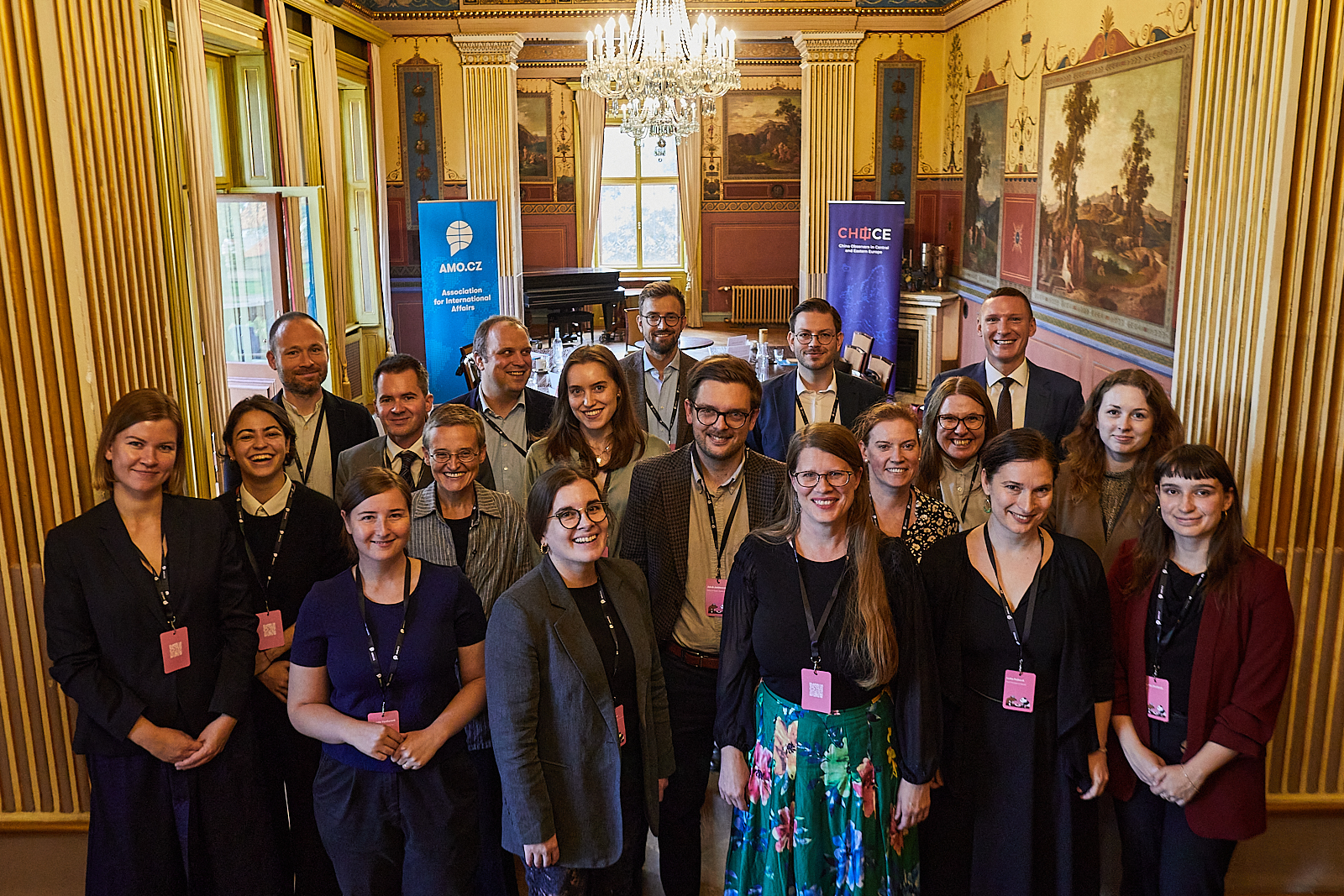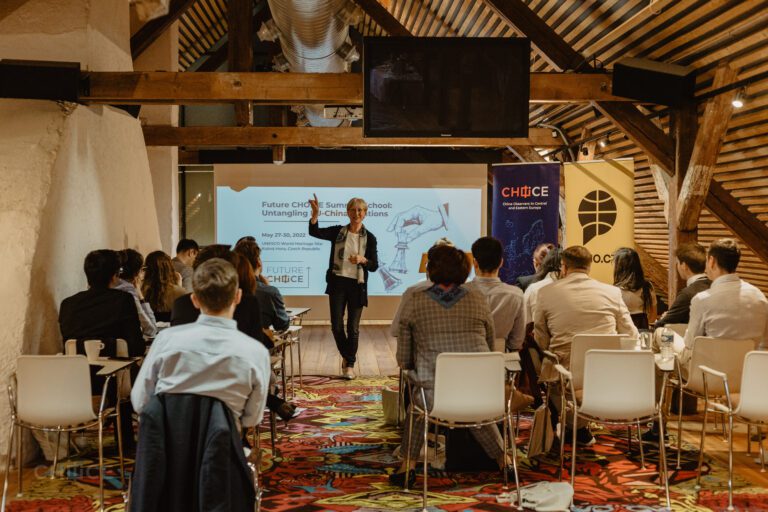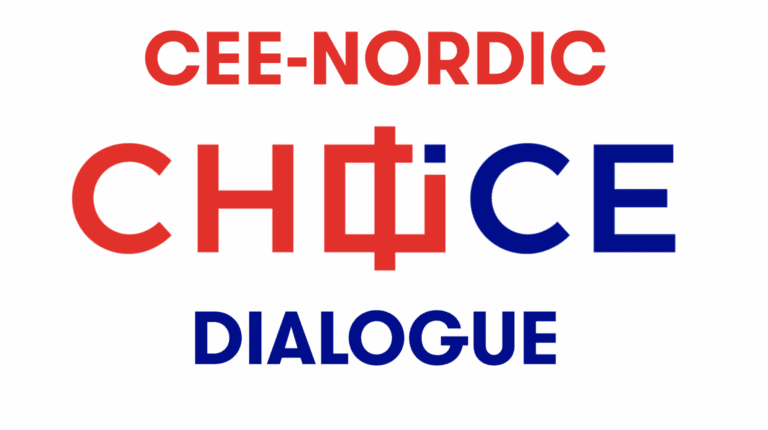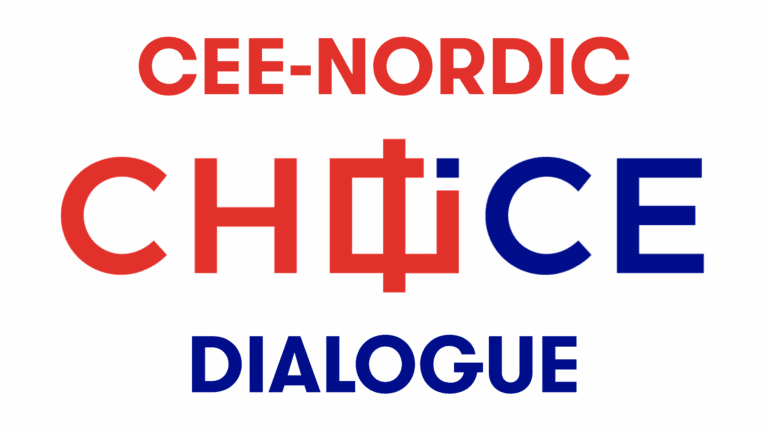China, Russia and the Strategic Blind Spots of Europe Conference

On September 15, 2025, the conference “China, Russia and the Strategic Blind Spots of Europe” – co-organized by the Association for International Affairs (AMO) and the European Council on Foreign Relations (ECFR) – was held at Vila Lanna in Prague. The dialogue brought together participants from think tanks and government institutions across the Baltic region, Poland, and the Czech Republic. The discussion was held under the Chatham House Rule.
Opening the event, Vít Dostál of AMO provided crucial context by highlighting recent developments affecting European security: Russian drones entering Polish airspace, Belarus releasing political prisoners in exchange for sanctions relief, the Zapad 2025 Russian-Belarusian military exercises, and airspace closures in Poland and Latvia. The ensuing discussion took place against the backdrop of ongoing political campaigns in the Czech Republic, where debates over ammunition deals and diplomatic engagement with Beijing and Moscow reflect broader European divisions on China/Russia policy. The discussion was moderated by Jakub Jakóbowski, Deputy Director and Head of the China Department at the Centre for Eastern Studies (OSW).
Understanding China’s Security-First Transformation
Keynote speakers Alicja Bachulska (ECFR) and Ivana Karásková (AMO) provided comprehensive analysis of China’s evolving strategic approach. Under Xi Jinping, China has fundamentally shifted its priorities, adopting a “security first” notion under which national security outweighs economic growth considerations.
This transformation reflects China’s response to economic slowdown and what speakers described as a “mentality of fear” – concerns about US encirclement, internal breakdown, and potential regime change. China is systematically insulating itself through reduced reliance on foreign markets, supply chain independence, and financial diversification, while simultaneously wielding outward-facing economic sticks such as coordinated boycotts and trade pressure.
The speakers emphasized that China’s official “active defense” doctrine coexists with more aggressive capability-building and power projection, including hypersonic weapons development and the comprehensive “three warfare” strategy encompassing psychological, media, and legal dimensions alongside cyber espionage and economic coercion.
The Deeply Rooted China-Russia Alliance
The analysis revealed unprecedented cooperation between Beijing and Moscow under Xi Jinping, characterized by over 40 high-level meetings, frequent informal communication, and complementary economic arrangements. China benefits from cheap energy supplies while providing crucial support that helps Russia withstand Western sanctions, with China accounting for 30 percent of Russia’s trade in 2022.
Military cooperation has intensified significantly, with at least 111 joint exercises and operations conducted by 2024. The relationship has evolved beyond mere partnership into strategic alignment, with 39 percent of Chinese citizens viewing Russia as an ally with shared values, according to cited polls.
Critically, speakers argued that China considers preventing Russia’s collapse essential –regardless of the specific regime – as long as it remains non-Western, non-liberal, and non-democratic. This creates a dynamic where China tolerates instability in Russia, provided it does not fundamentally alter the balance, ideally seeking a “weakened but standing Russia.”
Central and Eastern European Perspectives
The dialogue revealed significant variations in regional approaches to the China challenge. Polish representatives emphasized the need for greater expertise on China within government administration while questioning whether a unified European strategic culture is achievable, arguing that “strategic culture is national.”
Czech officials acknowledged that while awareness of China’s role exists, Russia remains the overwhelming priority in strategic discussions.
Baltic states demonstrated nuanced positions: Estonia focuses on cyber threats and systemic exclusion; Latvia maintains pragmatic trade relations while aligning with EU policy; and Lithuania has begun moderating its previously hawkish stance, though it continues to list China in its national threat assessments.
Policy Implications and Scenarios
The discussion explored three potential scenarios for European policy development:
- Russian Victory: This scenario would likely see China fade into the background as Russia becomes an even greater immediate threat, potentially leading to full decoupling from Russian energy and heightened European-Chinese competition in post-war reconstruction, which risks reducing Europe to a “geopolitical bystander” caught between US demands and Chinese economic coercion.
- Russian Defeat: This would boost EU enlargement efforts and limit Chinese involvement in rebuilding Ukraine, particularly in critical infrastructure. Risks include potential European backsliding on defense spending and challenges related to arms proliferation.
- Status Quo/Prolonged War: This creates the most complex dynamics, with European responses heavily dependent on US policy – under a potential Trump administration leadership – ranging from enhanced cooperation to complete fragmentation of Western approaches.
Key Takeaways and Recommendations
The conference concluded with strong consensus on several critical points. Participants emphasized the urgent need for EU-wide recognition of China as Russia’s primary enabler, with corresponding sanctions policy. They called for the formation of a “coalition of the threatened” – potentially including Baltic, Nordic, and Central European states – to drive policy conversations.
There was broad agreement on the need to mainstream understanding of the Sino-Russian alliance among European publics and policymakers, moving beyond expert circles to influence broader debates. The window for effective action was described as narrow, requiring immediate rather than postponed responses.
The dialogue demonstrated the value of sustained cross-regional exchanges to develop shared situational awareness and policy-relevant insights. Both the complexity of the Sino-Russian relationship and the diversity of European responses underscored the need for continued analysis and coordination among like-minded partners facing shared strategic challenges.
Written by
CHOICE
CHOICE is a multinational consortium of experts providing informed analysis on the rising influence of the People’s Republic of China within the countries of Central and Eastern Europe (CEE).


